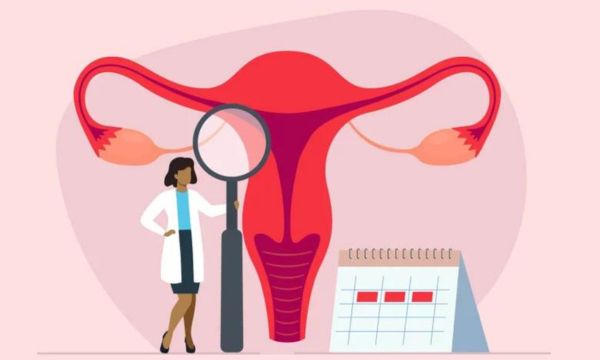Achieving a Balanced Diet: Vital for Women’s Health
In today’s fast-paced world, healthy eating is very important for your health and well-being. But healthy eating for women isn’t just about staying healthy; This is also to take care of their own health needs. In this article, we discuss why a balanced diet is important for women’s health and give you some tips on how to do it.
Ad
Find Out Why a Balanced Diet is so Important for Women:
A balanced diet provides the body with all the nutrients it needs, in the right amounts. This is especially important for women, because their nutritional needs change as they age. Here are some of the top reasons why women’s health depends on a healthy diet:
1. Hormone Balance
When a woman gets her period, becomes pregnant, or goes through menopause, her hormones change differently. A good diet helps maintain the balance of these hormones, reducing the risk of mood swings, PMS and other associated problems.
2. Healthy Bones
After menopause, women are more likely than men to develop osteoporosis. A diet rich in calcium and vitamin D can help bones stay strong and prevent fractures.
3. Heart Health
Heart disease kills more women than any other disease. A balanced, low-fat, high-fiber diet can help reduce the risk of heart problems.
4. Reproductive Health
A good diet helps keep your reproductive organs healthy, allowing you to become pregnant and have a healthy baby. Folic acid, iron and other essential nutrients are very important during this period.
5. Controlling Weight
Women should maintain a healthy weight to avoid health problems such as obesity, diabetes and polycystic ovary syndrome. A balanced diet can help people control their weight.
How to get a Well-Rounded Diet:
Now that we know why a balanced diet is important for women’s health, here are some ways to achieve it:
1. Eat a Variety of Foods
Eat a variety of foods, such as fruits, vegetables, lean proteins, whole grains, dairy products, etc. This will ensure that you get a wide range of vitamins and minerals.
2. Control Section
Pay attention to portion sizes to avoid overeating. To maintain a good weight, you need to eat in moderation.
3. Drink Water
To stay fresh, drink enough water throughout the day. Sometimes people confuse thirst with hunger.
4. Cut back on Processed Foods
Processed and prepared foods often contain high amounts of salt, sugar and fat that are harmful to you, so try to eat them in sparing amounts.
5. Plan Healthy Meals
When planning your meals, aim for a mix of protein, carbohydrates and good fats. This gives you long-lasting energy and makes you feel full.
6. Don’t Eat Too Much Sugar
Be careful about how much extra sugar you consume because consuming too much sugar can lead to many health problems.
7. Consider Add-Ons:
If it’s difficult to get all the nutrients you need from food, you may need to take supplements. But before you do this, talk to your doctor or nurse.
8. Pay Most Attention to Nutrient-Rich Foods
Focus on nutrient-dense foods that provide you with the most important vitamins and minerals per calorie. This includes green leafy vegetables, berries, lean meats and whole grains.
9. Eat Consciously
Pay attention to the signals your body gives when it is hungry and full. Don’t eat in front of the TV or computer, as this can cause you to overeat.
10. Exercise Regularly
Make exercise part of your life. Exercise combined with a balanced diet can improve your overall health by speeding up your metabolism and making it easier to control your weight.
11. Seek Professional Help
If you have any concerns about your diet or health, it is best to talk to a registered dietitian or health care provider. They can give you advice based on your wishes.
12. Don’t Rush
Obtaining and maintaining a healthy diet is a continuous process. Be patient with yourself and remember that making small, lasting changes in the way you eat can make a big difference over time.
Conclusion:
Finally, healthy eating is one of the most important parts of women’s health. It helps with many different aspects of health, such as hormonal balance, heart health, bone strength and sexual health. By understanding what you eat, staying hydrated, and making healthy eating part of your daily routine, you can ensure your body gets the nutrients it needs to stay healthy and grow. Remember that taking care of your health is a lifelong task, and a varied diet is a powerful tool in helping you get and stay healthy. Start today and your body will thank you for years to come.
FAQs:
1. What exactly is a balanced diet?
A balanced diet provides your body with all the essential nutrients it needs, in the right proportions. It typically includes a variety of foods, such as fruits, vegetables, lean proteins, whole grains and dairy products, while limiting processed and sugary foods.
2. How does a balanced diet benefit women’s health?
Eating a balanced diet is essential for women’s health as it helps maintain hormonal balance, supports bone health, reduces the risk of heart disease, contributes to reproductive health and aids in effective weight management.
3. What specific foods should women pay attention to for their health?
Yes, for bone health, women should prioritize nutrient-dense foods such as green leafy vegetables, berries, lean proteins, and foods rich in calcium and vitamin D. Foods rich in folate are important for reproductive health. health, and foods low in saturated fat and high in fiber can support heart health.
4. What common nutritional problems do women face?
Common nutritional problems for women include iron deficiency (especially during menstruation), calcium deficiency (which can affect bone health) and inadequate folic acid intake (important during pregnancy). Additionally, women are generally more sensitive to social pressures related to body image and dieting.
5. Can Supplements Replace a Balanced Diet for Women’s Health Benefits?
Although supplements can help fill nutritional gaps, they should not replace a balanced diet. Whole Foods offer a wide range of nutritional and health benefits that supplements cannot replicate. Always consult a healthcare professional before taking supplements.
 Demystifying the Menstrual Cycle: What You Need to Know
Demystifying the Menstrual Cycle: What You Need to Know
The menstrual cycle is a normal biological process that most women experience from puberty to menopause. Although […]
More Understanding Women’s Health: A Comprehensive Guide
Understanding Women’s Health: A Comprehensive Guide
Women’s health is a vast and complex topic that encompasses physical, emotional, and social well-being. It is […]
More Your Pregnancy Journey: From Conception to Birth
Your Pregnancy Journey: From Conception to Birth
Bringing a baby into this world is a beautiful and life-changing event. Your pregnancy journey is unique […]
More